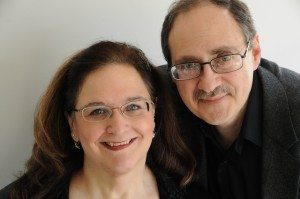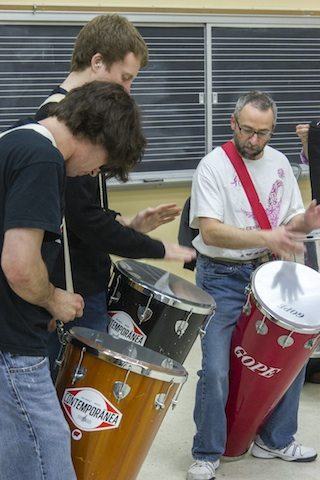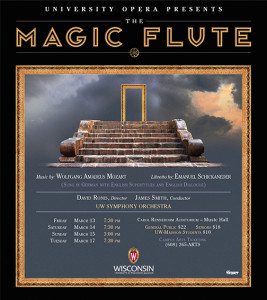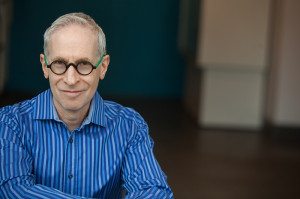Brass, jazz and three composers–American George Crumb, Cecilia McDowall of the United Kingdom, and France’s Jean-Philippe Rameau — will be showcased this year at the UW-Madison School of Music in the form of five multi-event guest artist festivals, starting in October and continuing through April. Funding is provided by the Vilas Trust and Anonymous Fund at UW-Madison. We thank them for their support.
Other notable events will include an eight-concert faculty/student “Showcase Series” series, presenting some of the most dynamic music that the School has to offer. Click here for Showcase info.
Some events are ticketed (click here for info). Tickets will go on sale one month ahead of time. All other events at the School of Music, including dozens of faculty recitals, student ensembles and individual guest artists, continue to be free.

Oystein Baadsvik
Our 2014-15 festivals include:
“Celebrate Brass”
Wednesday, October 8 — Monday, October 13, 2014
Brass music is often known for its swagger, but it is also famous for delicate polyphonies and burnished tones. We invite the public to experience the beauty of brass first-hand at a festival featuring both a full array of music and musicians, many at the height of their careers.
Performers will include famed Norwegian tubist Øystein Baadsvik, the only musician to have created a career as a tuba soloist, rather than becoming a member of an orchestra or accepting a teaching post. His multi-faceted musical career as a soloist, chamber musician and recording artist has taken him all over the world. Øystein Baadsvik’s international career began in 1991 when he was awarded two prizes at the prestigious Concours International d’Exécution Musicale in Geneva.
Baadsvik will be joined by hornist Jessica Valeri (BM, UW-Madison, 1997) of the San Francisco Symphony Orchestra, Michigan’s Western Brass Quintet, UW-Madison’s Wisconsin Brass Quintet, renowned brass composer and blogger Anthony Plog, new UW-Madison faculty tubist Tom Curry, as well the best brass players and conductors at the University, including a Brass Choir led by conductor Scott Teeple.
Events will include concerts, solo recitals, masterclasses, brass coachings, a colloquium and a reception.
Click here for full schedule.
The 4th Annual UW-Madison/Madison Metropolitan School Jazz Festival
Wednesday, December 3 — Saturday, December 6, 2014
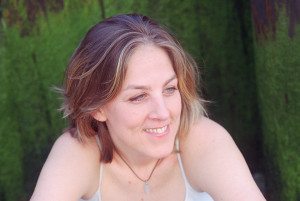
Ingrid Jensen
A festival featuring workshops and performances for college and high school jazz performers. This marks the first time that UW-Madison will host the event.
This festival will feature Ingrid Jensen, trumpeter, bandleader, artist-in-residence at the University of Michigan and part-time faculty member at the Peabody Conservatory. Ingrid Jensen has been a major figure on the international jazz scene for over 20 years. Her three CDs for the ENJA label and her latest CD, “At Sea,” won her nominations from the Canadian Juno Awards, including an award in 1995 for Vernal Fields. In addition to her work as a leader of the quartet Project O and the quintet Nordic Connect, Jensen is a featured soloist with the Maria Schneider Orchestra, with whom she recorded four albums, including the Grammy Award-winning “Concert in the Garden” and “Sky Blue,” the former of which was also named Jazz Album of the Year by the Jazz Journalists Association.
Jensen is a member of the Mosaic project with Terri-Lynn Carrington, Esperanza Spaulding and Geri Allen; the Darcy James Argue’s Grammy-nominated Secret Society; the Juno-award winning Christine Jensen Orchestra; has been featured on Gil Evans’ Porgy and Bess at the San Francisco Jazz Festival, under the direction of Maria Schneider; and has appeared as a guest in the festival’s “Tribute to Woody Shaw and Freddie Hubbard”, alongside Terence Blanchard, Eddie Henderson, Bobby Hutcherson and Kenny Garrett.
The festival will include master classes in jazz trumpet and improvisation, open rehearsals, a Saturday high school clinic, and performances with UW jazz ensembles and high school big bands from Madison and Middleton.
This festival is free and open to the public.
Click here for full schedule.
“Seventy Degrees Below Zero”: A concert series and residency showcasing the music of British composer Cecilia McDowall
Friday, February 19 through Sunday, February 23, 2015
In 2009, after premiering a McDowall work, “Framed,” UW-Madison trumpet professor John Aley discovered for himself what he describes as the “challenging, energizing, poetic, clever, tongue in cheek, and utterly beautiful” music of Cecilia McDowall.
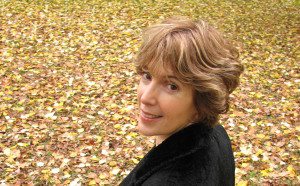
Cecilia McDowall
Our festival, organized by Aley, will feature the first-ever United States residency of British composer Cecilia McDowall and the US premiere of her symphonic work “Seventy Degrees Below Zero,” commissioned by the City of London Sinfonia and the Scott Polar Research Institute, based in Cambridge, England.
Often inspired by extra-musical influences, McDowall’s writing combines a rhythmic vitality with expressive lyricism. She has won many awards and has been short-listed several times for the British Composer Awards. Her music has been commissioned and performed by leading choirs, including the BBC Singers, ensembles and at major festivals both in Britain and abroad and has been broadcast on BBC Radio and worldwide.
“Seventy Degrees Below Zero” is a cantata for solo voice (to be sung by faculty tenor Jim Doing) and orchestra, inspired by a phrase written by British captain Robert Falcon Scott to his wife, prior to his death while returning from an expedition to the South Pole: ‘Dear, it is not easy to write because of the cold – 70 degrees below zero.’ ”
Joining us on Saturday will be Michael DuVernois of the UW-Madison IceCube Particle Astrophysics Center, only recently returned from the Antarctic, who will present an entertaining and educational talk, complete with historic and modern photographs, on the progression of Antarctic exploration from the heroic age through modern science on the coldest, highest, driest continent.
Other works to be performed during the three-day festival include the first US performances of “Regina Caeli,” for four trumpets and four trombones, and “Cavatina at Midnight,” for clarinet, cello and piano. Her haunting choral works “Ave Regina” and “Ave Maris Stella” will be performed by the UW Chamber Choir, directed by Bruce Gladstone. In addition to Jim Doing, faculty performers will include pianists Christopher Taylor and Martha Fischer, clarinetist Linda Bartley, soprano Elizabeth Hagedorn, oboist Kostas Tiliakos, trombonist Mark Hetzler, trumpeter John Aley, cellist Parry Karp, percussionist Anthony Di Sanza, violist Sally Chisholm, and others.
In 2008, the Phoenix Chorale won a Grammy Award for “Best Small Ensemble Performance” for its Chandos CD, “Spotless Rose: Hymns to the Virgin Mary,” which included a work, “Three Latin Motets” by Cecilia McDowall.
Click here for full schedule.
Read a review in The Guardian newspaper of the UK premiere of “Seventy Degrees Below Zero.”
“Honoring George Crumb at 85”
Sunday, March 22 and Monday, March 23, 2015
George Crumb has been a major force in American composition since the 1960s when his Ancient Voices of Children set to texts by Garcia Lorca provided an evocative and deeply personal response to late modernist serialism. The winner of both a Pulitzer Prize and Grammy, Crumb continues to compose new works, most recently his American Songbooks, that celebrate the magic and mystery of life. Crumb’s music often juxtaposes contrasting musical styles and quotes from pre-existing works, and his use of extended instrumental techniques shows his predilection for new sound colors. Many of Crumb’s works include programmatic, symbolic, mystical and theatrical elements, which are often reflected in his beautiful and meticulously notated scores.
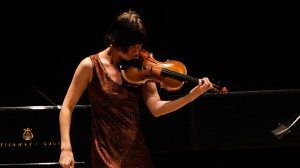
Miranda Cuckson
Crumb’s 85th birthday provides an opportunity to celebrate this composer through concerts, workshops, and master classes featuring guest artists as well as our own faculty and students. The program will include a performance of the “Crumb Madrigals” by Chicago duo Due East and a concert by New York-based violinist Miranda Cuckson, as well as a performance of “The Violinists in My Life,” written by faculty composer Laura Schwendinger.
Cuckson is highly acclaimed for her performances of a wide range of repertoire, from early eras to the most current creations. In demand as a soloist and chamber musician, she appears in major concert halls, as well as at universities, galleries and informal spaces. She has performed at such venues as the Berlin Philharmonie, Carnegie Hall, the Library of Congress, Miller Theatre, the 92nd Street Y, Guggenheim Museum, and many more.
Nunc (Latin for “now”) was founded in 2007 as “Transit Circle ” by artistic director and violinist/violist Miranda Cuckson, and was renamed and incorporated as a not-for-profit organization in 2012. Nunc is devoted to presenting high-caliber performances of music of current, recent and older eras, through distinctive programming that highlights their innovations and contributions.
Due East (Erin Lesser, flutes; Greg Beyer, percussion) actively promotes new music and seeks to expand the flute and percussion duo genre through frequent commissions and premieres. Their first recording, Simultaneous Worlds, is available on Albany Records. Their second recording, Drawn Only Once, is a multi-media CD/DVD now available on New Amsterdam Records. Noted critic Steve Smith gave it a rare 5.0-star rating in Time Out New York, calling it “spellbindingly beautiful.”
Click here for full schedule.
Read a review of Miranda Cuckson in the New York Times.
“Rediscovering Rameau”
Multiple events; check back later for more details.
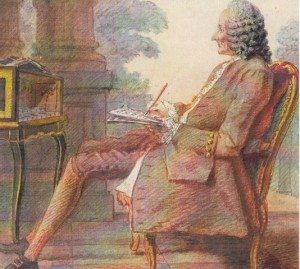
Jean-Philippe Rameau.
A year-long festival marking the 250th anniversary of the death of French Baroque composer Jean-Philippe Rameau.
The UW-Madison and community partners will offer a series of public events beginning this fall and culminating in April with two concert performances of Rameau’s one-act opera, Pygmalion, by the Madison Bach Musicians.
Learn more about Rameau here.
